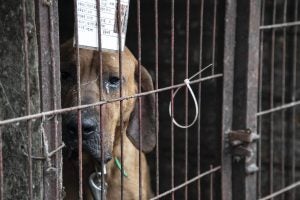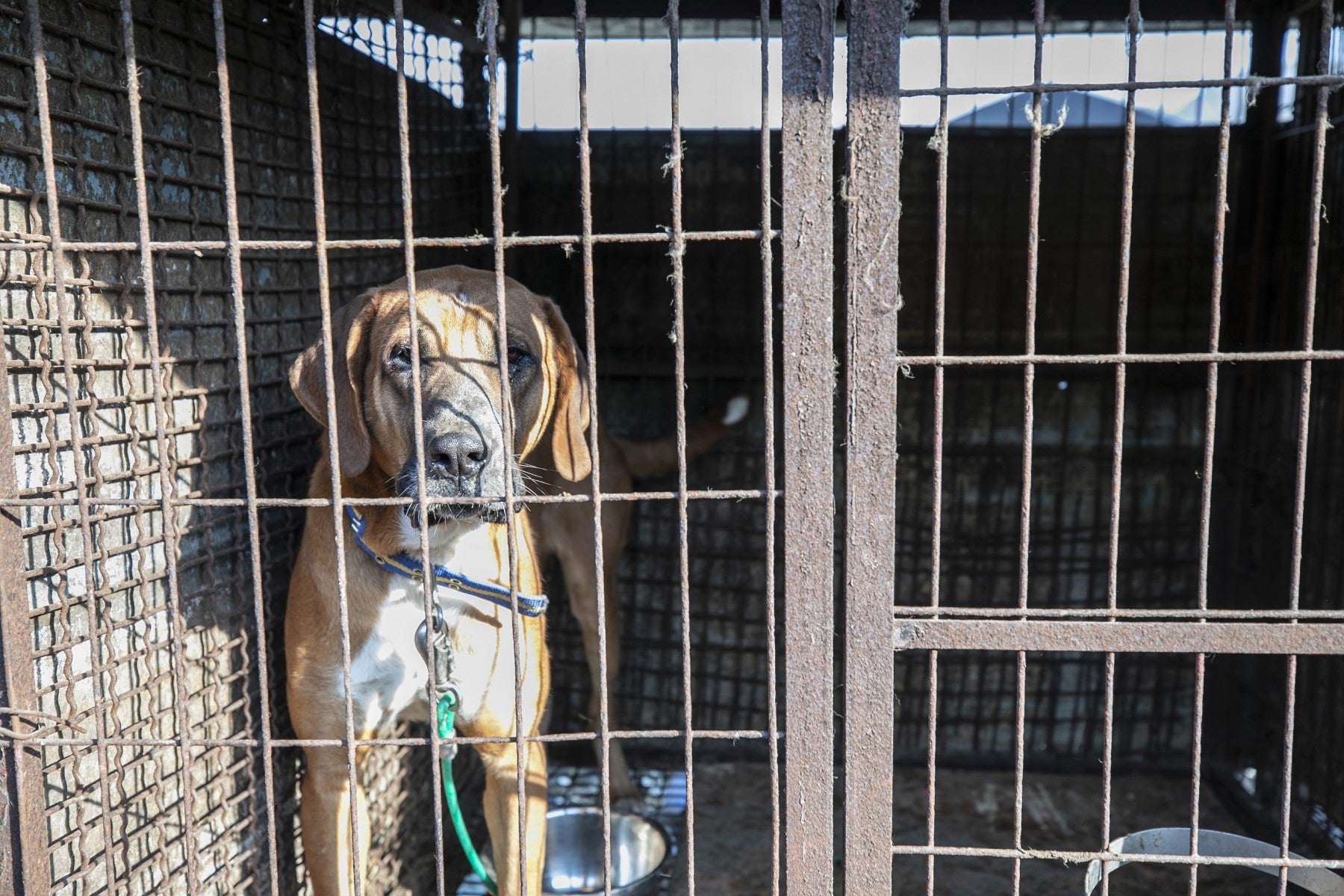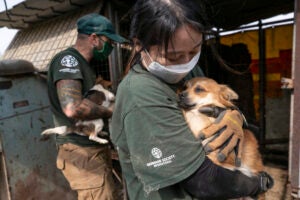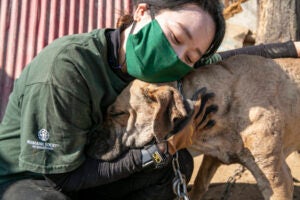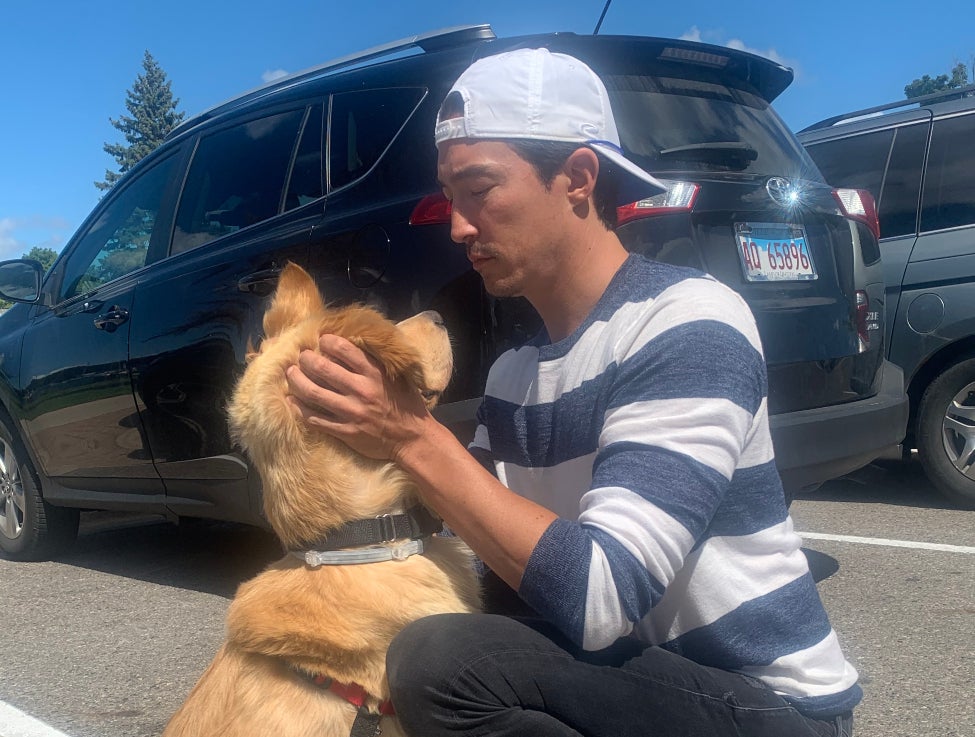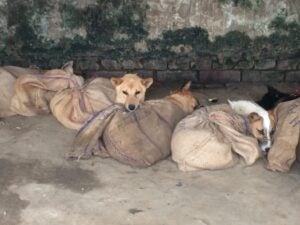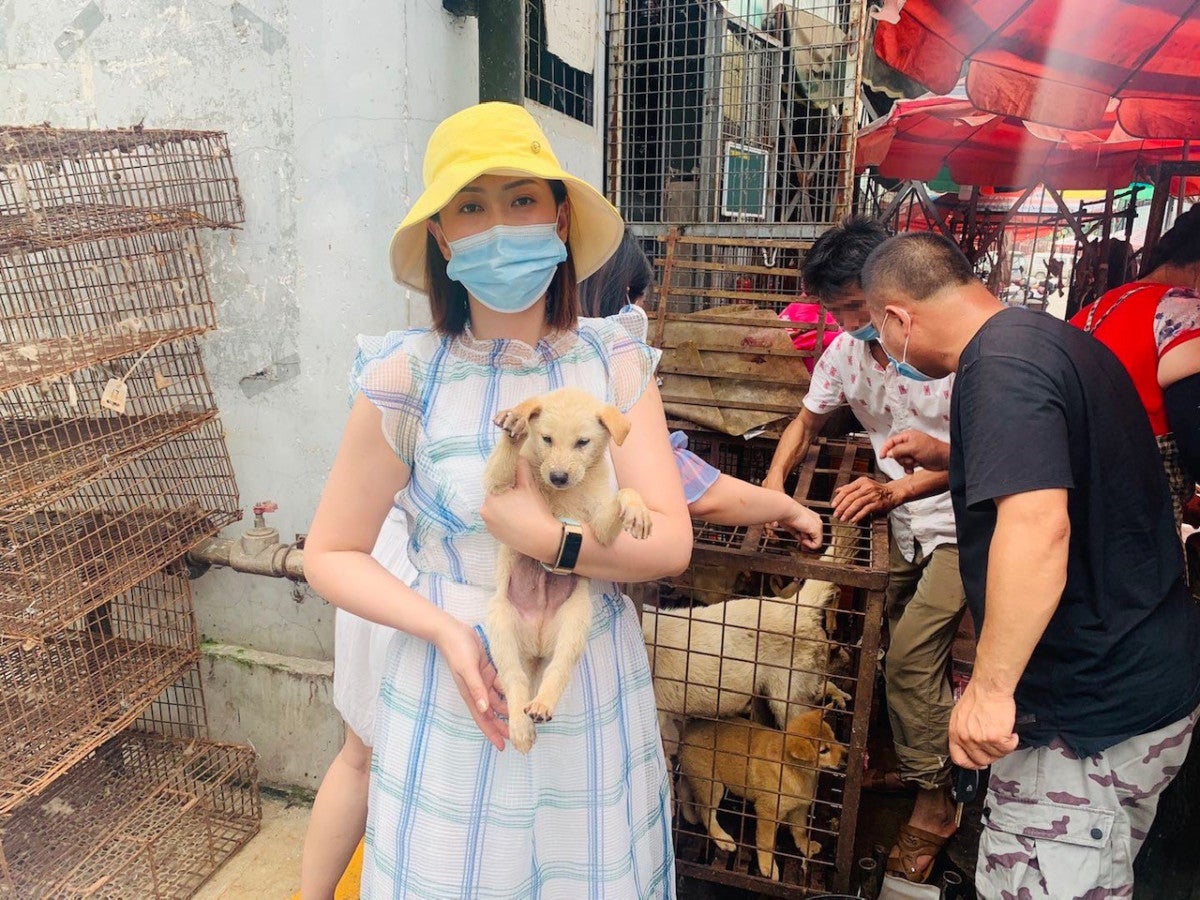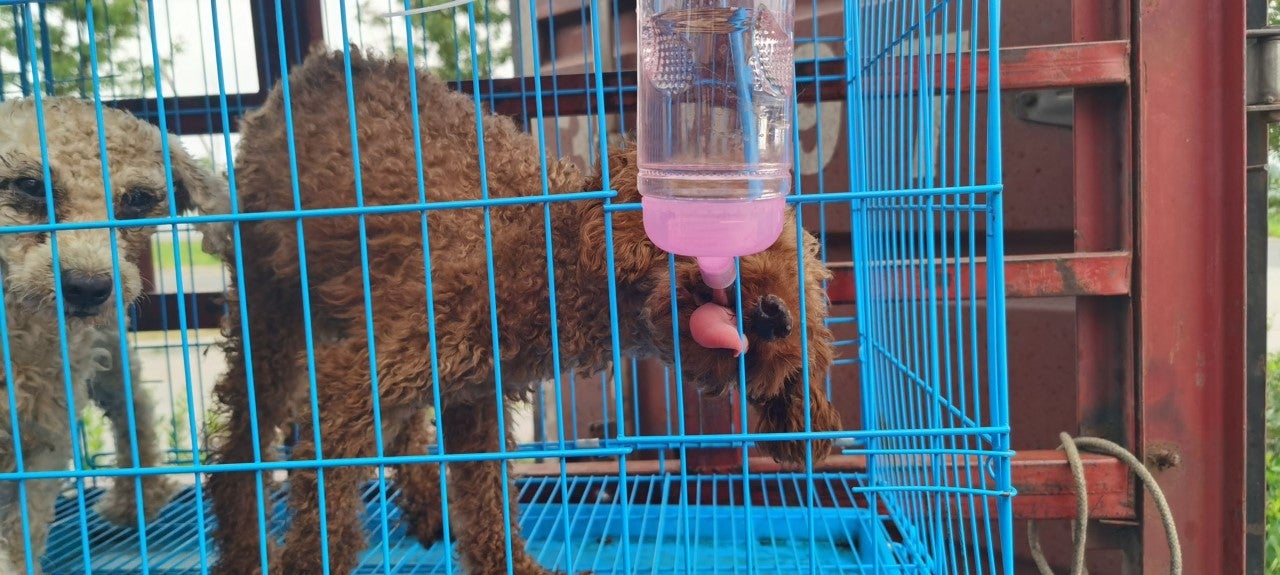
BEIJING—Chinese animal activists in Guangxi have intercepted a dog truck outside the city of Yulin, just as the summer solstice dog meat eating gets underway. The truck was packed with 68 terrified and exhausted dogs headed for Yulin’s slaughterhouses, having already endured a long journey on the highway without food or water. The activists had been urging Yulin authorities to set up more highway checkpoints to stop and confiscate dogs from inbound dog trucks, but in the absence of official action they took matters into their own hands and stopped the truck by themselves.
The 68 dogs were crammed so tightly into rusty wire cages in the suffocating heat, they could hardly move, and they were found panting and traumatised. Many of the dogs were in poor physical health with infected eyes, and several showed behaviour that indicated to the activists these were stolen pets.
Liang Jia, a Guangxi activist, said: “It was so frustrating to watch trucks of dogs arrive in Yulin when the authorities were supposed to be stopping them and confiscating the dogs. So we decided to save some dogs ourselves and waited on the highway for the next truck to arrive. When it did, we flagged it down and convinced the truck driver to hand over the dogs because they were clearly stolen pets for whom he didn’t have the legally required paperwork. The dogs offered us their paw just like a pet at home, and they had healthy teeth which means someone was looking after them before they were stolen. The Yulin authorities have a responsibility to protect public health, even if they don’t also care about the animals like we do. These poor dogs look sick, and thankfully now they will receive veterinary care, but who knows what diseases they could carry that would end up in the food market.”
The dogs were moved to a temporary facility to rest, recover and receive veterinary care before making the journey to a shelter supported by Humane Society International.
Dr Peter Li, China policy specialist for Humane Society International which supports the care of dogs rescued from China’s meat trade, said: “These activists are typical of a new generation in China who strongly oppose the dog and cat meat trades and are prepared to take action to see it ended in places like Yulin. The truth is that most Chinese people, including those in Yulin, don’t eat dogs. The suffering of these animals in Yulin is of course a tragedy, but we need to be calling for an end to this brutal trade every day across China, not just a few days in June in one city. HSI addresses the dog meat issue throughout the year and the country to advocate for an end to the dog and cat meat trades. Thankfully these 68 dogs are now safe after what must have been a terrifying ordeal, but for thousands more dogs in Yulin and millions across the country, the cruelty continues. Through dog theft, illegal trans-provincial transport and inhumane slaughter, the trade not only subjects animals to suffering but also risks public health with the potential for the spread of rabies and other zoonotic diseases. These are compelling reasons for the Chinese authorities to end this trade once and for all.”
Facts about China’s dog meat trade
- Most people in China don’t eat dogs, in fact dog meat is only eaten infrequently by a small per cent of the Chinese population. Even in Yulin, most people (72%) don’t regularly eat dog despite efforts by dog meat traders to promote it (2017 survey conducted by Chinese state-registered charities and assisted by research staff from the Yulin Municipal Government). And nationwide, a 2016 survey found that most Chinese citizens (64%) want to see an end to the Yulin festival, more than half (51.7%) think the dog meat trade should be completely banned, and the majority (69.5%) have never eaten dog meat. (Poll conducted by Chinese polling company Horizon, and commissioned by Chinese group China Animal Welfare Association in collaboration with Humane Society International and Avaaz).
- China’s Ministry of Agriculture and Rural Affairs made an official statement that dogs are companion animals and not “livestock” for eating. The announcement came as the Ministry published its final Directory of Genetic Resources of Livestock and Poultry. That same year, two major cities in China – Shenzhen and Zhuhai – banned the consumption of dog and cat meat, a decision polling shows is supported by nearly 75% of Chinese citizens. (Poll conducted April 2020 online portal com which surveyed 378 million people in mainland China).
- When the Yulin festival was first launched in 2010, as many as 15,000 dogs were killed during the core event days, but Chinese and international pressure has seen this figure reduce to around 3,000 dogs. However, many hundreds are still killed each day in the weeks leading up to the festival.
- An estimated 30 million dogs a year are killed across Asia for their meat, some 10-20million in China alone.
ENDS
Media Contact: Wendy Higgins, director of international media: whiggins@hsi.org

